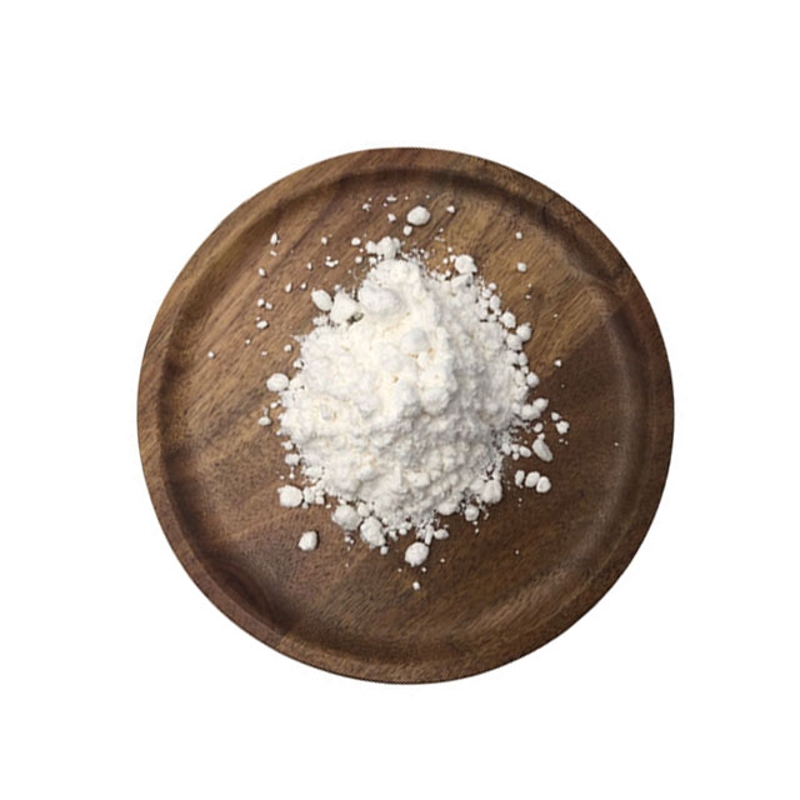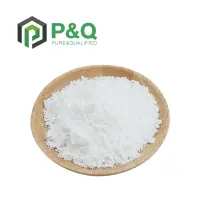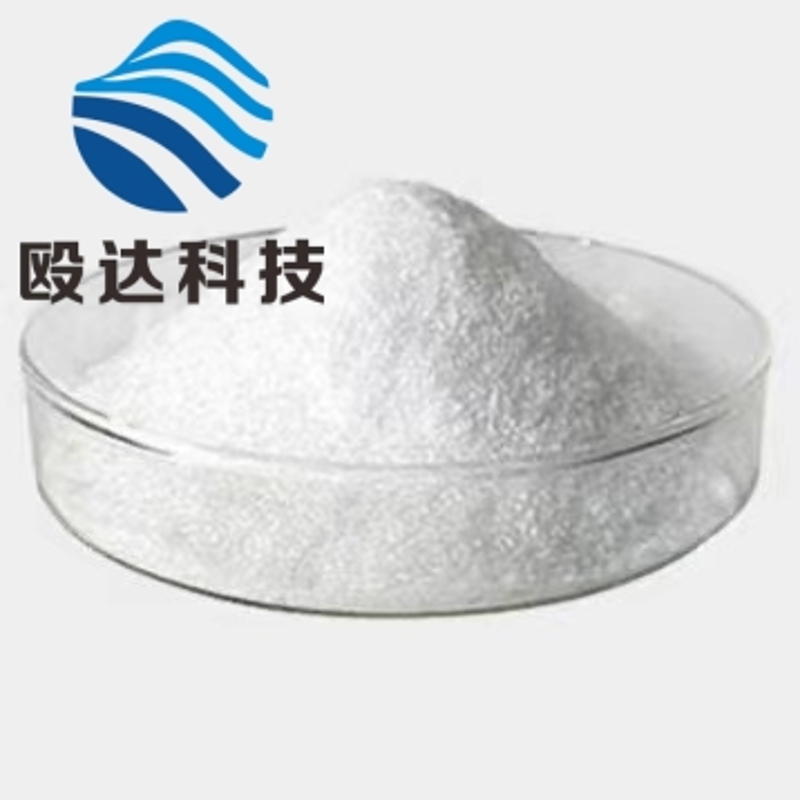The 12th session of the 17th Annual Meeting of the Chinese Association of Science and Technology - "The Great Concept of Nutrition in the New Era" countries...
-
Last Update: 2020-10-24
-
Source: Internet
-
Author: User
Search more information of high quality chemicals, good prices and reliable suppliers, visit
www.echemi.com
On the afternoon of May 23rd, the 12th session of the 17th Annual Meeting of the Chinese Association of Science and Technology (Nutrition Special Session) was held in Lingnan Hall of the Yuexiu Hotel in Guangzhou, where 12 international experts in nutrition from three countries, including Australia, Austria and the United States, shared their progress in nutrition research. More than 150 delegates from 22 provinces enjoyed an academic feast. The atmosphere was warm, and the wisdom generated by the exchange benefited the audience!
Ibrahim Elmadfa, former President of the International Union for Nutritional Sciences and Director of the Institute of Nutritional Sciences at the University of Vienna, Austria, shared with us a report entitled "Developing appropriate nutritional status assessment methods: an ongoing challenge". With the increasing rate of malnutrition in the population year by year, the establishment of scientific and reasonable nutrient assessment methods is conducive to detecting the level of important nutrients in different populations, providing reference standards for establishing the normal level of nutrients in the population, and providing the basis and methods for the formulation of health policies. At the same time, he points out, there is a difference between the traditional dietary inquiry method and the actual food intake weighing method, which better assesses nutrient levels. However, if a bio-chemical testing method to assess the status of various nutrients can be established, it will be able to more scientifically and accurately reflect the effective absorption and actual level of nutrients in different individuals, but the method is currently more expensive to detect, need to be further improved and widely used in the population. The report was warmly welcomed. Professor Ibrahim Elmadfa also answered your questions positively and patiently.. Professor Judith Storch, from Rutgers University, shared a report entitled FABP's Functional Research in the Transport of Intestinal Fat. Fatty acid binding protein (FABP) is the key regulatory protein of lipid metabolism, family members include FABP1, FABP2, FABP3, FABP4, FABP5, FABP7, FABP8, FABP9, according to metabolic organs are divided into liver FABP (LFABP) and intestinal FABP (IFABP) two categories, with regulation of intracellular FA transport, metabolism, anti-hyperlipid and related gene expression. Using the FABP gene to knock out animal models in mice, Professor Judith Storch's study found that IFABP knock-out mice affected FA metabolism, LFABP knock-off mice affected MG metabolism, and TG/PL decreased. In addition, FABP knock-out mice had lower blood sugar levels than normal in the OgTT experiment. LFABP and IFABP function differently, the molecular mechanism of regulating lipid metabolism involves the metabolism of many metabolic pathways such as endolytic cannabinin system, lymphatic system, liver-brain-BAT axis, intestinal-brain-liver axis, GPCR/CD36 signaling system, etc. Professor Judith Storch interacts with participants and answers questions positively.. Prof. Mark L Wahlqvist, former President of the International Union of Nutritional Sciences, made the keynote report "Problem-Solving in Clinical Nutrition". Professor Mark presents the current state of clinical nutrition and the problems faced by the world in seven areas: (1) introducing the concept of clinical nutrition, which involves ten systems of neurology, endocrine, blood vessels, breathing, digestion, urinary, reproductive, skin, bone, muscle, etc.; Disease, Parkinson's disease, dementia, chronic kidney disease and uremia; (3) evidence-based nutrition (EBN) ;(4) nutrition-related diseases (NRD) ;(5) ecological nutrition; (6) problems faced by clinical nutrition in China; and (7) standardized clinical nutrition practice. Professor Mark's report broadens the horizons of participants and provides a comprehensive understanding of new concepts, advances and challenges in clinical nutrition.. Professor Elsie M. Taveras, Director of Pediatrics, Massachusetts General Hospital, USA, reports on "Maternal-Child Obesity Prevention in The First 1000 Days." The first 1,000 days of life are crucial, referring to the 270 days of pregnancy and the 1 to 2 years of age after birth. It is a critical period of the body's tissue, organ and system development. Professor Elsie reviewed the rise in overweight obesity in U.S. children before age 5 and type I and II diabetes in childhood over the past decade, and systematically reviewed the risk factors for early life overweight obesity as mum obesity, fetal tobacco exposure, excessive weight gain in pregnancy, overweight at birth, and excessive weight gain in infestation. She argues that the 1,000-day period from pregnancy to 2 years of age is important, a window into childhood obesity and chronic adult diseases, and argues that the goal of the first 1,000 days of life is to ensure that every woman is in the healthiest metabolic state during pregnancy;. Professor Oscar J. Benavidez, from Harvard Medical School in the United States, brought a wonderful report entitled "Raising Healthy Hearts: Preventing Cardiovascular disease across life span". The report begins with an update on advances in cardiovascular disease research, including cardiovascular risk factors and health risks from cardiovascular disease, which are the leading causes of death in many countries, with many cardiovascular diseases beginning in childhood and continuing for life. Risk factors and behaviors in childhood exacerbate the development process of CVD, while controlling risk factors slows the progression of CVD into a clinical disease. Therefore, it is important to prevent CVD risk factors in childhood. Nutrition and lifestyle interventions are the cornerstones of maintaining and promoting cardiovascular health, and dietary interventions from inferfested to prevent CVD are important, and dietary interventions such as low-fat diets and limiting the intake of sugary beverages are effective dietary interventions. Professor Oscar J. Benavidez concludes by explaining in detail the Comprehensive Cardiovascular Lifestyle and Diet Diet (CHILD 1) in the United States, which provides new ideas and references for the prevention and treatment of cardiovascular disease.. Professor Dong Kong, from Harvard Medical School in the United States, the Boston Center for Nutrition and Obesity, and Tufts University, brings us an academic report on "Neural Modulation by Nutrition and Metabolism", which is very colorful! Its research work covers a wide range of areas of genetic development, metabolism, and neurology, focusing on the effects of nutrition and metabolism on the central nervous system (CNS) and related neurological disorders such as Schizophrenia, Autism, Alzheimer's Disease, etc., and its research team follows gene→protein→ The idea of synapse→ neuron→circuits→stem, which sheds light on the functions of a number of genes that work in complex nervous systems, and the association between RIP neurons and energy metabolism, has yielded many original results, published in leading international journals such as Science and Cell.
.. The whole academic report aroused the heated discussion of the participants, pictured is the Beijing Hospital Nutrition Department Sun Mingxiao director of the question exchange listing guest photo On the morning of May 24th, the International Forum on Nutrition Branch in Guangzhou Yuexiu Hotel Lingnan Hall wonderfully continued, from home and abroad nutrition well-known scholars brought us the latest research progress. The conference was chaired by Professor Ling Wenhua of Sun Yat-sen University and Professor Li Wei of Zhejiang University.
Lei Xingen, from Cornell University, gave a paper entitled "Can bio-enhanced breeding of nutrients from major crops improve Chinese nutritional status and health of these groups?" The opening report of . It mainly deals with the current situation and solutions of global nutrient deficiency, whether bio-enhanced breeding methods can improve the nutritional deficiency of poor people, the methods of achieving bio-enhanced breeding of crops, the improvement of nutrients after the intake of bio-enhanced crops currently being carried out in the population, and whether bio-enhanced crops are favored by farmers and consumers. In addition, Professor Lei shared his experiences with the HarvestPlus-China project and analysed the socio-economic benefits of implementing bio-enhanced crop programmes. Professor Lei's report was affectionate and well received by the participants, and he answered all the questions of concern in detail.
Youfa Wang, from the State University of New York, gave a report entitled "Nutrition and the global obesity and non-communicable chronic disease and control". Professor Wang introduces the epidemiology, causes, prevention and management of chronic noncommunicable diseases (NCDs). NCDs are now a global and Chinese health crisis, killing 38 million people each year, accounting for 82 percent of NCDs-related deaths from cardiovascular disease, tumors, chronic lung disease, diabetes, and 90 percent of premature deaths worldwide. Chronic disease deaths in China increased from 69.8% in 1991 to 85.7% in 2012, with the top four causes of death being cancer, cerebrovascular disease, heart disease and respiratory diseases. The top four causes of NCDs are smoking, lack of exercise, alcohol consumption, and unhealthy diets, leading to an increase in overweight and obesity and diabetes, according to a global obesity survey that spanned more than three decades (1980-2013). The proportion of obese or overweight people worldwide increased by nearly 30 per cent (adults) and nearly 50 per cent (children), respectively, and the total number of overweight and obese people increased from 857 million in 1980 to 2.1 billion in 2013, while the number of adult men with BMI greater than 25 increased from 28.8 per cent to 36.9 per cent and for women from 29.8 per cent to 38 per cent. Nutritional interventions are critical in the prevention of NCDs, and Professor Wang presented the China Childhood Obesity Research Program and related results, which were funded by the NIH.
. Professor Li Wei of Zhejiang University gave a report entitled "The Application of Nutritional Genomics and Metabolomics in Clinical Nutrition". Professor Li first introduced the concepts and definitions of clinical nutrition, nutritional genomics, nutritional genetics and metabolomics, and then took the study of type 2 diabetes as an example, introduced the role of gene-nutrient interaction in the pathogenesis of type 2 diabetes, introduced in detail PEPD fatty acid research, n-3PUFA research, nutritional genomics, metabolomics technology is a powerful weapon for clinical nutrition research. Professor Li has published more than 420 papers, SCI includes more than 160 articles, in the past three years SCI papers 75, 9 works / chapters, 18 invention patents.. Professor Ling Wenhua of sun Yat-sen University's School of Public Health brought us the Research progress on phytochemicals and chronic diseases prevention in China (progress in the prevention of phytochemicals and chronic diseases in China), and as a well-known scholar in the field of plant chemistry research at home and abroad, Professor Ling introduced the latest progress from the three aspects of disease spectrum change, plant chemicals research and the prevention of chronic diseases. Combined with its own research on phytochemicals, the molecular mechanism of phytochemicals to prevent chronic diseases, the recommended intake of phytochemicals in China and the background of their formulation are explained in depth. Finally, Professor Ling looks forward to the future research direction of phytochemicals.. He Meizi, a professor at the University of Texas in the United States, gave a report on Leadership: How to Build a Nutritional Research Team. Professor He introduced the definition of the scientific research team, focusing on the characteristics of the nutritional research team, namely, team goals and blueprints, leadership type, team structure, team management and supervision, team motivation and honor, etc.; Multidisciplinary nutrition research team cooperation should be based on a common vision, mutual respect and trust between each other, good at dealing with conflicts and contradictions, good at using social and peripheral resources, by strength, to promote the efficient operation of nutrition research team. Finally, the final conclusion emphasizes that the ultimate goal of nutrition research is to promote human health, treat team members according to their personality and characteristics, give full play to their advantages, improve and avoid short, encourage team members to innovate, through cooperation to enhance research capacity, increase scientific research output.. The whole report was wonderful, aroused the high enthusiasm of the delegates to ask positive questions, and the discussion was intense on the spot!. The 5th Nutrition Leadership Training Course Press
June 4, 2015
.
This article is an English version of an article which is originally in the Chinese language on echemi.com and is provided for information purposes only.
This website makes no representation or warranty of any kind, either expressed or implied, as to the accuracy, completeness ownership or reliability of
the article or any translations thereof. If you have any concerns or complaints relating to the article, please send an email, providing a detailed
description of the concern or complaint, to
service@echemi.com. A staff member will contact you within 5 working days. Once verified, infringing content
will be removed immediately.







